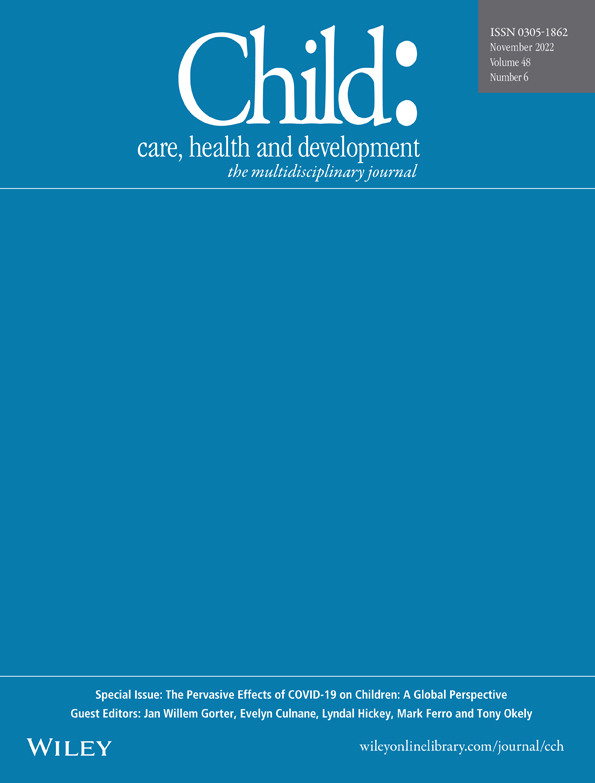Neurodisability care in the time of COVID-19
Funding information: maria marina foundation; Medical Research Council, Grant/Award Number: MR/P008712/1; NIHR Bristol Biomedical Research Centre, Grant/Award Number: Award to Guy's & St Thomas' NHS Foundation Tru
Abstract
Background
The COVID-19 pandemic resulted in an unprecedented societal and healthcare global crisis. Associated changes in regular healthcare provision and lifestyle through societal lockdown are likely to have affected clinical management and well-being of children/young people with neurodisability, who often require complex packages of multidisciplinary care.
Methods
We surveyed 108 families of children/young people with severe physical neurodisability and multiple comorbidities to understand how the pandemic had affected acute clinical status, routine healthcare provision, schooling and family mental and social well-being.
Results
A significant proportion of families reported missing hospital appointments and routine therapy, with subsequent worsening of symptoms and function. Families additionally described worsening stress and anxiety during the pandemic, regardless of their baseline level of socio-economic deprivation.
Conclusion
This highlights the profound effect of the COVID-19 pandemic on health and function in young people with severe neurodisabilities and emphasizes the clear need to better understand how to support this vulnerable population moving forwards.
Open Research
DATA AVAILABILITY STATEMENT
As the data consists of clinical and sociodemographic information collected through reviewing NHS records, it is not possible to openly share the data in an anonymized form. However, the authors are happy to be contacted to share specific aspects of the data on request if it can be appropriately anonymized.




